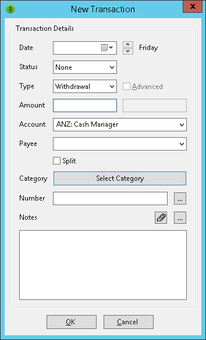What!?! Isn't it supposed to be "only" 14 trillion, instead of 130? Not if you use REAL accounting practices, like real businesses have to do.
The Other National Debt[...] Accountants get a bad rap — boring, green-eyeshades-wearing, nebbishy little men chained to their desks down in the fluorescent-lit basements of Corporate America — but, in truth, accountants wield an awesome power. In the case of the federal government, they wield the power to make vast amounts of debt disappear — from the public discourse, at least. A couple of months ago, you may recall, Rep. Henry Waxman (D., State of Bankruptcy) got his Fruit of the Looms in a full-on buntline hitch when AT&T, Caterpillar, Verizon, and a host of other blue-chip behemoths started taking plus-size writedowns in response to some of the more punitive provisions of the health-care legislation Mr. Waxman had helped to pass. His little mustache no doubt bristling in indignation, Representative Waxman sent dunning letters to the CEOs of these companies and demanded that they come before Congress to explain their accounting practices. One White House staffer told reporters that the writedowns appeared to be designed “to embarrass the president and Democrats.”
A few discreet whispers from better-informed Democrats, along with a helpful explanation from The Atlantic’s Megan McArdle under the headline “Henry Waxman’s War on Accounting,” helped to clarify the issue: The companies in question are required by law to adjust their financial statements to reflect the new liabilities: “When a company experiences what accountants call ‘a material adverse impact’ on its expected future earnings, and those changes affect an item that is already on the balance sheet, the company is required to record the negative impact — ‘to take the charge against earnings’ — as soon as it knows that the change is reasonably likely to occur,” McArdle wrote. “The Democrats, however, seem to believe that Generally Accepted Accounting Principles are some sort of conspiracy against Obamacare, and all that is good and right in America.” But don’t be too hard on the gentleman from California: Government does not work that way. If governments did follow normal accounting practices, taking account of future liabilities today instead of pretending they don’t exist, then the national-debt numbers we talk about would be worse — far worse, dreadfully worse — than that monster $14 trillion–and–ratcheting–upward figure we throw around. [...]
This article goes on to show, point by point, using real accounting principles, what the actual debts are that will be coming home to roost. And along the way, explaining the political reasons as to how and why it's been allowed to happen.
More proof that government is not only not the answer; it's often the problem. Of course we need government, but we also need BALANCE. Especially on the balance sheet, as every real accountant knows.


